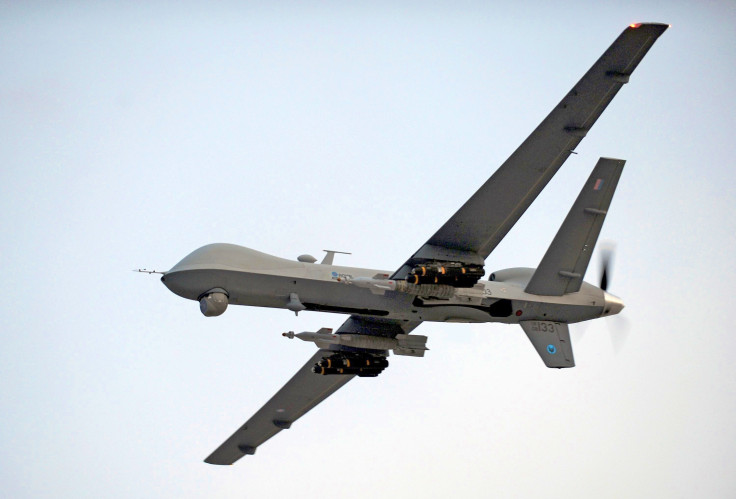
The Trump administration is reportedly still weighing the possibility of launching drone strikes against Mexican drug cartels.
Citing six current and former U.S. military, intelligence, and law enforcement officials familiar with the discussions, NBC News detailed that while no final decision has been made, options under consideration include both joint operations with the Mexican government and potential unilateral strikes.
According to the sources cited, the use of U.S. drones to target cartel operatives and infrastructure inside Mexico would represent a significant escalation in counter-narcotics strategy. A former official told the outlet that the goal of the flights is to "build a target deck" that could include cartel operatives, vehicles, warehouses, and other logistical nodes.
Defense Secretary Pete Hegseth and Ronald Johnson, Trump's nominee for ambassador to Mexico, have both declined to rule out unilateral military action to strike cartels in the country. "All cards are on the table," the both said in separate statements. In fact, according to NBC News, former Defense Secretary Mark Esper claimed in his memoir that Trump once asked whether missiles could be launched into Mexico and then allow the U.S. to deny any involvement. Trump officials have denied this account.
Advocates of drone strikes argue that sustained military pressure could force cartels to reconsider the economic viability of fentanyl trafficking. Critics, in turn, warn the move could backfire diplomatically and politically, destabilize the region, and prove ineffective. Arturo Sarukhán, Mexico's former ambassador to the U.S. warned about the potential consequences of the plan:
"There is no doubt if there were unilateral action inside Mexico, this would put the bilateral relationship into a nosedive It would be put in a tailspin, as it would represent a violation of international law and an act of war"
As the administration considers next steps, broader military assets have been deployed to the region. The Department of Defense recently stationed advanced ground-based radar systems in Arizona to detect cartel drones, while the guided-missile destroyer USS Gravely—previously deployed to combat operations in the Middle East—has joined U.S. Northern Command operations to support border security.
General Gregory Guillot, head of NORTHCOM, confirmed to defense reporters that cartel drones are detected frequently crossing into U.S. airspace and may number "in the thousands" annually. The destroyer's deployment, according to USNORTHCOM, is aimed at filling "critical capability gaps" in support of Customs and Border Protection.
DEA intelligence cited by NBC News suggests cartel leaders are disorganized and unsure how to respond to the increased pressure.. "They're scrambling right now," said Cheri Oz, DEA Special Agent in Charge in Phoenix. "There's a lot of disorganization amongst the cartels."
Still, many experts argue that drone strikes offer no silver bullet. "Dropping bombs is seductive but accomplishes not very much and comes with enormous risk," said Vanda Felbab-Brown, a narcotics policy expert at the Brookings Institution.
© 2025 Latin Times. All rights reserved. Do not reproduce without permission.





